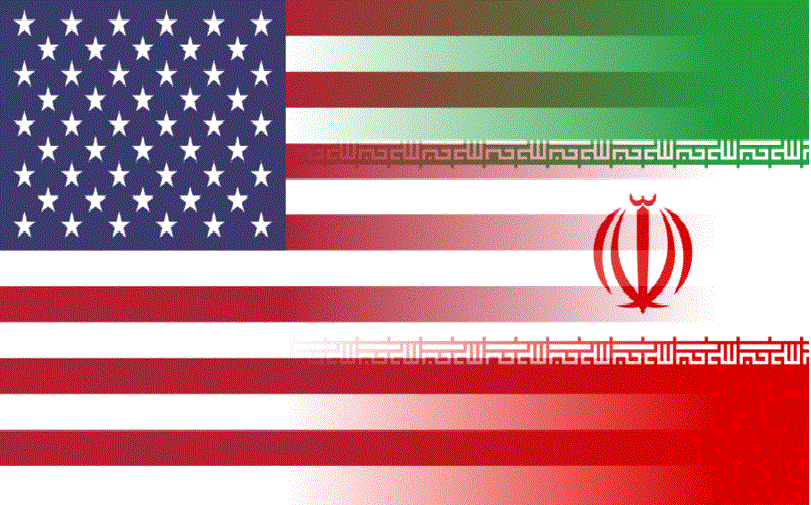Interview with Nasser Hadian
The Islamic State in Iraq and Syria (ISIS), a militant Sunni group, has taken control of much of eastern Syria and, most recently, northern Iraq. What are the implications for Iran?
Stabilizing Iraq is extremely important to Iran for a number of reasons.
First, in the long term, Iran is concerned that the insecurity in Iraq could spillover if the situation is not controlled and contained. Iran, however, is not immediately concerned with its own border security.
 Second, Tehran basically prefers the continuation of Nouri al Maliki’s government, which is the legitimate government in Baghdad. Iran has good relations with Iraq and does not want a disruption of the post-Saddam Hussein system.
Second, Tehran basically prefers the continuation of Nouri al Maliki’s government, which is the legitimate government in Baghdad. Iran has good relations with Iraq and does not want a disruption of the post-Saddam Hussein system. Third, ISIS has targeted Shiites. It is now stirring up a sectarian war in which Iran would be obliged to protect not only its own citizens in Iraq, but also Iraqi Shiites. ISIS seems to have captured territory with logistical, intelligence and material support from Saudi Arabia and other countries. So Iran feels that it has to back up the government in Baghdad. Tehran, however, does not want the conflict to escalate.
What is Iran doing to support the central Iraqi government?
Tehran is providing political support to Baghdad but is keen to prevent the conflict from turning into a full-blown sectarian war. So it is not sending troops. Reports in the media about Iran sending soldiers are purely guesses and have been denied by top officials. But Tehran is likely helping Iraq, under the table, by offering advice about how to fight the militants, and helping with logistics and intelligence gathering. Iran probably had military advisors in Iraq before the crisis anyway.
 President Hassan Rouhani has suggested that Iran could consider joint action with the United States. But Supreme National Security Council Secretary Ali Shamkhani has been careful not to associate Tehran with Washington at all on this issue because he is concerned that many Sunnis in the region would consider U.S.-Iran cooperation a conspiracy of Shiites and Americans against them.
President Hassan Rouhani has suggested that Iran could consider joint action with the United States. But Supreme National Security Council Secretary Ali Shamkhani has been careful not to associate Tehran with Washington at all on this issue because he is concerned that many Sunnis in the region would consider U.S.-Iran cooperation a conspiracy of Shiites and Americans against them. Maliki may be able to quell ISIS if he mobilizes militias to help the Iraqi armed forces. But if Iraq cannot solve this crisis within the next two to three months, the conflict could turn into a protracted war and last for several years. And ISIS may shift its forces if it finds Maliki’s government weaker than the Assad regime, resulting in a war of attrition. The oil-rich region is also an attractive base of operations for the militants, which have already stolen $425 million from banks across Iraq.
An ISIS shift to Iraq would also have regional implications. It would make it much easier for Assad’s forces to suppress Syrian opposition forces. Unlike Iraq’s armed forces, the Syrian Army is relatively intact. The Syrian government is holding back the opposition, which is supported by Saudi Arabia, other Gulf states, and many Western nations. But the swift takeover of Mosul by ISIS showed that the Iraqi army is weak.
Iraq crisis map: where the latest frontline fighting is taking place http://t.co/hmPgISB1HR pic.twitter.com/DuumotVK6m
— Telegraph News (@TelegraphNews) June 18, 2014What are Iran’s core interests in Iraq? Do they overlap with U.S. concerns? If so, how could the two cooperate?
Both Tehran and Washington are concerned with stabilizing Iraq and preventing the breakout of a sectarian war. They also want to ensure the safe passage of oil to international markets and preserve the territorial integrity of Iraq.
 Iran and the United States also want to see a more inclusive government in Baghdad. Even Iran would like to see the Shiites share more power with the Sunnis and Kurds to preserve the Iraqi state. Iran wants to see Kurdistan as part of Iraq, even if it continues to be an autonomous region.
Iran and the United States also want to see a more inclusive government in Baghdad. Even Iran would like to see the Shiites share more power with the Sunnis and Kurds to preserve the Iraqi state. Iran wants to see Kurdistan as part of Iraq, even if it continues to be an autonomous region. Iran’s influence in Iraq and its shared interests with the United States probably led Senator Lindsey Graham to suggest talking with Tehran about the crisis. But there is virtually no chance of publicized cooperation. The more likely scenario would be similar to U.S.-Iran cooperation in Afghanistan in 2001, when Tehran provided U.S. forces with intelligence that helped overthrow the Taliban.
But not all U.S. interests totally align with Iran’s. Washington is likely concerned with ISIS spreading its operations to U.S. allies in the Gulf.
Nasser Hadian is a professor of political science at the University of Tehran.
Online news media are welcome to republish original blog postings from this website in full, with a citation and link back to The Iran Primer website (www.iranprimer.com) as the original source. Any edits must be authorized by the author. Permission to reprint excerpts from The Iran Primer book should be directed to permissions@usip.org
Photo credits: President.ir and Ministry of Defense
